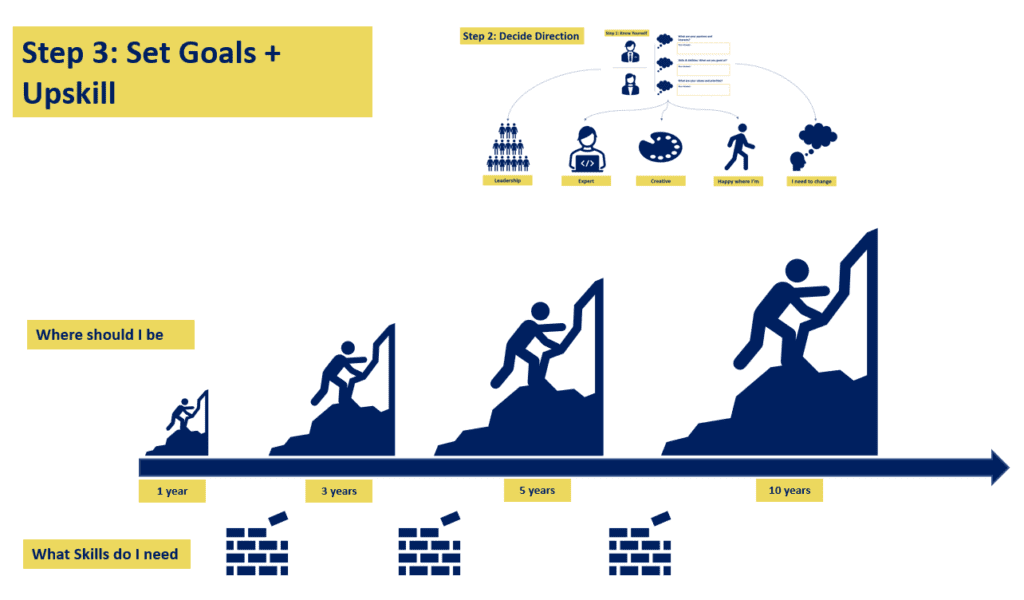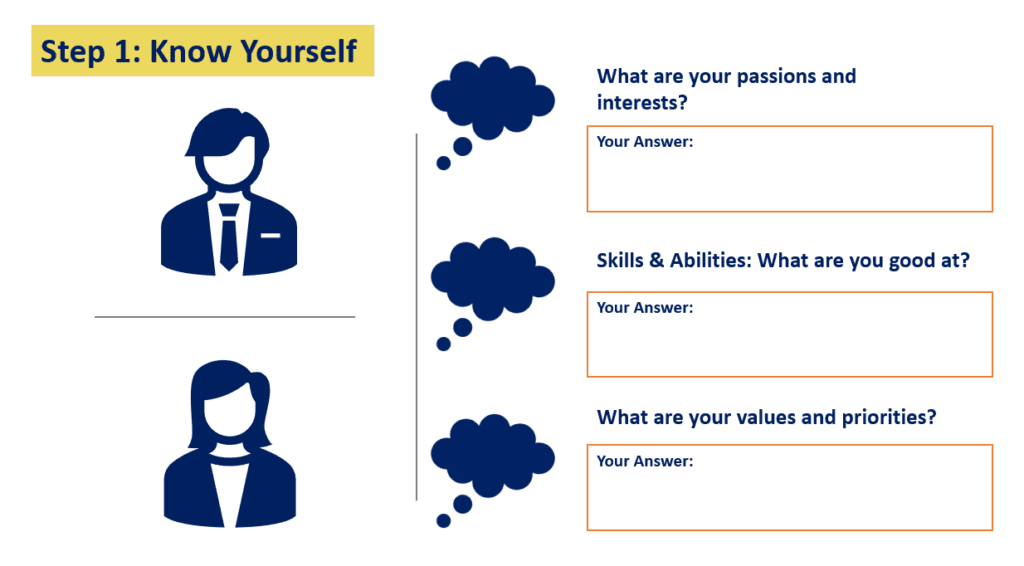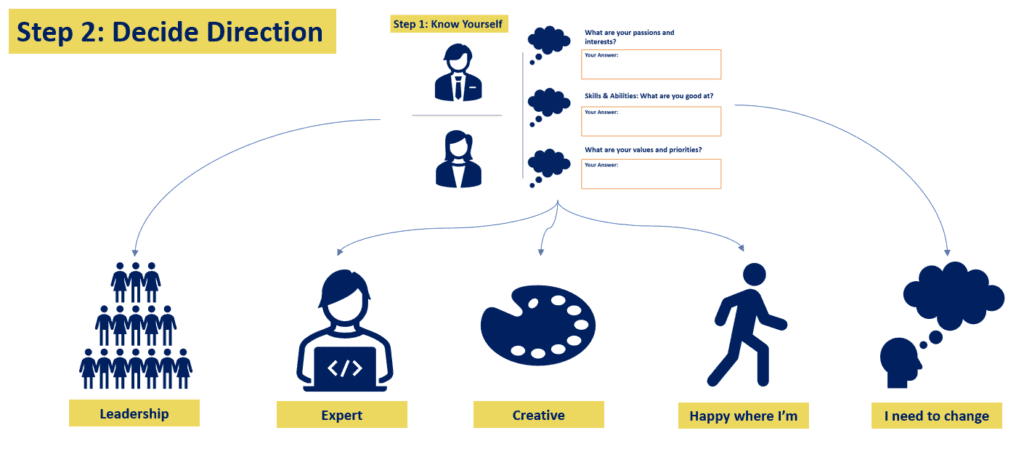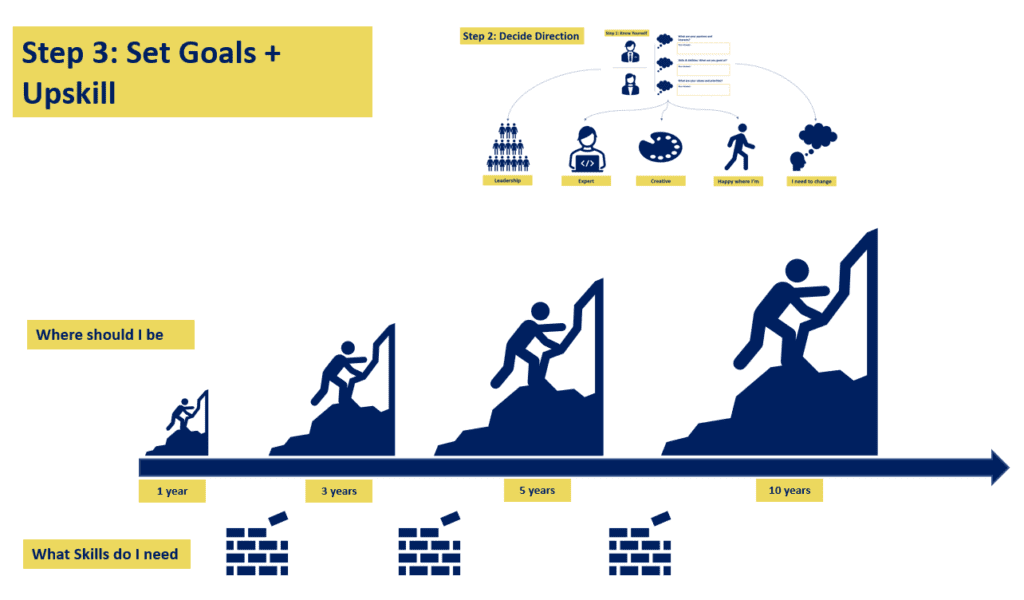How To Develop A Useful Career Development Plan Template in 2023

Are you looking for the perfect career development plan template to help streamline your professional development? If so, you’ve come to the right place! Having a solid career strategy is essential for any employee—no matter what industry or level of experience—and it can provide important guidance and direction when navigating workplace challenges.
A successful career development plan allows employees to identify goals, develop skills, stay organized with deadlines and manage their time effectively. In this blog post, we’ll discuss the different types of templates available, how they can benefit you at work and how to find one that works best for your unique needs & own career development. Let’s get started!
Note: Do not look for a template from the internet, this blog aims to help you create one for yourself.
What is a Career Development Plan Template and Why Do You Need One?
A career development plan template is a document that outlines an individual’s professional goals and development strategies. It is designed to help employees identify areas of focus for improvement, set achievable objectives and milestones, and track progress over a specific period. This type of plan can be used both short-term (to achieve specific goals within a few months) or long-term (over several years).
Having a career development plan in place can help you stay organized and motivated while pursuing your professional ambition—no matter what it may be! Whether you’re looking to advance your current position, move into a new role or simply learn something new, the right template will provide direction and structure while giving you the freedom to tailor it to your unique career path.
Identify your goals and objectives – what do you want to achieve in your career
Everyone has dreams, and these dreams can become reality with the right mindset and dedication. When it comes to your career, it’s important to identify your goals and objectives early on. What do you want to achieve? Do you aspire to become a high-ranking executive in your field, or do you want to start your own business?
Whatever it may be, taking the steps to set goals for your future can help turn your dreams into a successful reality. By outlining your career aspirations, you can focus on creating a plan that aligns with your vision, and ultimately work towards achieving your goals. So take the time to identify your career goals and objectives, and make your dreams come true!
How to Identify Your Career Goals and Objectives

Developing a career plan can be an overwhelming process for many people. It requires careful consideration of your interests, abilities, values, and goals. To help you get started, here are some steps you can take to identify what you want in your career:
Discover your passions and interests
Start by making a list of your passions, hobbies, and interests. Reflect on the activities that bring you joy, fulfilment, and a sense of purpose. Identifying your passions can help you uncover potential career paths that align with what you truly enjoy doing. Consider these questions:
- What activities do you look forward to in your free time?
- Are there any tasks or projects at work that you particularly enjoy?
- What subjects or topics do you find fascinating and engaging?
Evaluate your skills and abilities
Assess your strengths, weaknesses, and areas where you excel. Be honest with yourself about your current skill set and identify areas where you could improve. Reflect on feedback you’ve received from colleagues, managers, or mentors, and consider the following questions:
- What tasks or responsibilities do you excel in?
- Are there any skills you have acquired through education, work, or life experiences?
- Which areas do you struggle with or need improvement in?
Reflect on your values and priorities
- Consider your core beliefs and values, and think about how they might influence your career choices. Determine if any non-negotiable aspects of your work-life balance or ethical considerations could impact your career path. Reflect on the following questions:
- What is most important to you in a work environment?
- Do you prioritize job stability, personal growth, or social impact?
- Are there any values or principles you want to uphold in your career?
Research potential career paths
Explore different industries, job roles, and career paths that interest you. Gather information about the qualifications, skills, and experiences required for each role, and compare these requirements to your current skill set. Utilize online resources, attend career fairs, and network with professionals in your fields of interest to learn more about potential opportunities. Ask yourself:
- What are the key responsibilities and challenges in each role?
- What is the typical career progression for each path?
- Are there any emerging industries or roles that excite you?
You might find interesting choices for a career path that you didn’t even consider before. Once you have identified what you want from your career, create a plan of action to make it happen.
Understand what makes a good career development plan template – what works for one person may not work for another

A career development plan is a crucial tool for those who want to enhance their professional growth. However, what works for one person may not work for another. Therefore, understanding what makes a good career development plan template is essential. A good template should take into account the individual’s strengths, weaknesses, and career goals.
It should also be flexible enough to accommodate changes in career aspirations, industry trends, and personal circumstances. Additionally, a good template should be easy to follow, concise, and practical. By using a well-designed career development plan template, individuals can take ownership of their career paths and achieve their desired goals.
Create your own plan: Defining short-term and long-term goals, setting deadlines, and outlining the steps you need to take towards achieving them

Creating a plan for your future can seem daunting, but it’s essential to set both short-term and long-term goals in order to achieve success. Begin by defining what you hope to accomplish in the next few months, and then move on to outlining your aspirations for the next several years.
It’s important to set specific, measurable objectives and establish realistic deadlines for yourself. Don’t forget to break down each step required to reach your goals, as this will give you a clear idea of what you need to do to succeed. With a plan in place, you’ll be well on your way to achieving your dreams.
Monitor your progress regularly and make adjustments as needed
To stay on track and reach your goals, it’s crucial to regularly monitor your progress and make adjustments as needed. While it may seem daunting to take a step back and evaluate how you’re doing, doing so can help you identify areas where you’re excelling and others where you may be falling short.
By keeping a close eye on your progress, you can make sure you’re staying on track and making the necessary adjustments to achieve success. Whether it’s a personal or professional goal, taking the time to evaluate and adjust as needed can help you reach the finish line.
Get a career coach to help to stay on track

Navigating the professional world can be overwhelming, especially if you’re unsure of where you want to go or how to get there. This is where a career coach can help. With their expertise and guidance, they can assist you in setting achievable goals, developing actionable plans, and staying accountable to yourself throughout the journey.
By working with a career coach, you’ll have someone who can offer personalized support and guidance as you pursue your dreams. Whether you’re looking to switch careers or simply need to refine your professional skills, a career coach can help you stay on track and achieve long-term success.
Wrap Up
Taking the time to create a career development plan is a worthwhile endeavour that can open up many potential opportunities. It’s important to make sure you identify your goals, understand what makes a good plan and incorporate it into your own unique plan, reach out to a career coach if needed and track your progress regularly. Having an actionable plan with achievable milestones will help you stay focused as you navigate these uncharted waters of career growth.
With hard work, dedication and motivation, you can turn your dreams into realities and be successful in reaching whatever uplifting heights you set for yourself. If you can stay organized, remain motivated, and embrace new challenges when they arise then there is nothing stopping from developing a fulfilling career path that is both rewarding and satisfying.
Frequently Asked Questions
What is the importance of career development planning for employees and organizations?
Career development planning is crucial for both employees and organizations as it helps individuals identify and work towards their professional goals while also supporting employee growth and retention within the company. By providing learning programs and resources, organizations can foster employee development and ensure the team stays engaged, skilled, and motivated.
How do short-term and long-term goals contribute to an employee’s career development plan?
A2: Short-term and long-term goals are essential components of an employee’s career development plan. Short-term goals help employees focus on immediate growth opportunities, skill development, and performance improvements. Long-term goals provide a broader vision for an employee’s career progression and align with their dream job or desired professional growth. Balancing both types of goals ensures a well-rounded approach to career planning.
What role do managers play in supporting an employee’s career development plan?
Managers play a crucial role in supporting an employee’s career development by understanding the employee’s career goals, providing resources and learning opportunities, and offering regular feedback through performance reviews. Managers can also facilitate regular check-ins to discuss progress, address challenges, and help employees refine their plans as needed.
How can employees assess their current skills and identify areas for improvement in their career development plans?
Employees can assess their current skillset by reflecting on their strengths, weaknesses, and feedback received from managers and colleagues. They should also consider the specific skills needed for their dream career or desired job. By identifying areas for improvement, employees can create actionable development objectives and pursue new challenges or learning opportunities to enhance their skills.
What are some ways to track progress in a career development plan?
Tracking progress in a career development plan can be done by setting measurable goals, regular check-ins with managers or mentors, and reflecting on personal and professional growth over time. Employees should also evaluate their performance in their current role and consider any new skills or experiences gained since creating the plan.
How can organizations support employee growth and retention through career development programs?
Organizations can support employee growth and retention by offering career development programs that help employees identify their professional goals, develop new skills, and advance in their careers. These programs can include mentorship opportunities, training workshops, and access to resources that enable employees to grow within the company.
By investing in employee development, organizations can improve transparency, enhance team performance, and foster a culture of continuous learning.
How can team leaders help employees in setting their long-term career goals?
Team leaders can support employees in setting long-term career goals by providing guidance on potential growth opportunities within the organization, offering insights on industry trends, and discussing the skills and experiences needed for career progression.
Here are some helpful job interview related blogs
- Tackling the final interview round
- How to answer ‘tell me about yourself’
- What are your career aspirations?
- Why do you want this job?
- Strengths and Weaknesses In Interview
- Interview questions for managers
- Interview questions for freshers
- Tips to succeed in a job interview
- Do you need an Career coach
Here’s some helpful career/leadership related blogs
- Careers– Agile Coach, RTE, Product Owner, Scrum Master, QA Manager
- Career development plan
- Career growth
- Project Management
- Managing Managers
- IT Career switch
- Software Engineering career path
- Agility, Agile Testing
- Remote leadership / Leadership traits
Other Productivity / Tools posts that may interest you
- Productivity
- Book summary apps – Headway App vs Blinkist vs getAbstract
- AI Writers: / Blogging – Jasper, Writesonic, Article Forge , Copy AI, Anyword, Writecream, Copymatic, Quillbot, Peppertype, Jasper AI (pricing) &
- Work From Home tools: Jabra
Author also writes at his Medium site.





